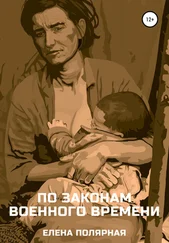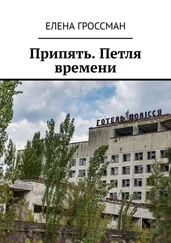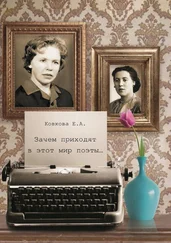2. Why did Holmes decide to look like a servant that morning?
3. What did he learn about Irene Adler?
4. Who arrived at her house soon? What happened then?
5. Where did Holmes go?
6. Why did Irene Adler and Mr Norton need Holmes at that moment?
7. What sort of help did Holmes want from Watson?
3
That evening Holmes (change) not only his clothes. He (change) his face, his hair – everything. He (be) a different person. We (walk) together to Serpentine Avenue. Outside the house there (be) a lot of people. They (smoke), (talk), (laugh).
«I (be) sure that the photograph (be) in the house,» (say) Holmes.
«But where you (look) for it?»
«I (not/look). She (show) me».
Just then a taxi (arrive). Irene Norton (get) out of it. One of the men in the street (run) to the car. Another one (push) him. A fight (begin). Holmes (run) to help Irene. Suddenly he (fall) to the ground with blood running down his face. Some people (carry) him into the house. I (wait) outside the window. Then Holmes (put) up his hand, and I (throw) the smoke-stick into the room.
There (be) a loud cry «Fire!» I (walk) away and ten minutes later Holmes (come) to me.
«You (have) the photograph?» I (ask).
«I (know) where it (be). She (show) me».
«But why she (show) you?»
«It (be) easy. You (see) all those people in the street? I (pay) them. It (not/be) the real fight, and the blood (not/be) real. When people (shout) „Fire!“, a woman (run) to the most important thing – her baby, her gold… or a photo. I (not/take) it, tomorrow we (go) there with the King, who himself (take) the photograph».
While we (talk), a young man (go) past us and (say),
«Good evening, Mr Holmes!»
«I (know) that man,» (say) Holmes to me, «but who it (be)?»
Answer the questions:
1. Why did Holmes run to the car when the fight began? What happened to him?
2. What did Watson do when Holmes was outside the house?
3. Why did Irene Norton show Holmes where the photograph was?
4. Why did not Holmes take the photo?
4
The next day we (go) to Irene Norton’s house with the King. An old servant (open) the door.
«Mrs Norton and her husband (leave) England in the morning. They never (come) back to this country,» he (say). Holmes (run) to the cupboard and (open) it. Inside (be) a photo, not of Irene Adler and the King, but of Irene alone. There (be) also a letter for Sherlock Holmes. We (read) it together.
My dear Sherlock Holmes,
You (do) it well. I (think) it (be) a real fire and you (be) just a kind old man. But when I (open) the cupboard, I (begin) to think. I (know) about famous Sherlock Holmes. I (know) that the King (ask) you to find the photo. So I quickly dressed as a young man and (follow) you. I (say) «good evening» to you! We (leave) England. Please, tell the King that I never (show) the photo to anybody. I (love) my husband, and he (love) me. The King can have this photo if he (like).
Irene Norton
Answer the questions:
1. What did the servant say when they three came to Irene’s house the next day?
2. What was in the cupboard?
3. When did Irene begin to think that it was all a put-up job?
4. What did she promise the King?
22. «Soapy’s Choice» by O’Henry
Vocabulary: prison – тюрьма
Tenses to use: Present Simple, Past Simple, Present Continuous, Past Continuous, Future Simple.
Soapy (sit) on his seat in Madison square when a dead leaf (fall) on his arm. Winter (come) and it (be) time to go to a nice warm prison where he usually (spend) winters.
Soapy (begin) to try his first plan. «I (go) to a restaurant,» he (think). «When I (be) there, I (make) an order and (not/pay). If I (not/pay), they (call) a policeman. When the police (come), they (take) me to prison. And if I (get) to the table in the restaurant quickly enough, nobody (notice) my old shoes and terrible trousers.»
However, as soon as Soapy (go) into the restaurant, strong hands (turn) him round and (help) into the street. Now he (have) to think of something different.
Soapy (stop) in front of the shop window in a crowded street. He (pick) up a stone. «If I (break) the window, a policeman (see) it,» he (think). «He (take) me to the police station. If I (get) to the police station, I (be) in prison soon.» He (throw) the stone at the window. People (run) to see what (happen). Soupy (be) happy because the man in front (be) a policeman. «I soon (be) in prison,» Soapy (think). But the policeman (know) that people who (break) windows (not/stand) and (wait). They (run) away. Just then the policeman (see) another man who (run) to the bus and (run) after him.
Soapy (be) very angry now. «I never (get) to prison!» he (think). He (go) back to Madison Square and home – his seat.
He (walk) along the street when suddenly he (see) a beautiful old church. For a few seconds he (remember) other, happier days. Then a wonderful thing (happen). Soapy (decide) to change his life. «Tomorrow I (go) into town», he (say) to himself. «When I (be) there, I (find) work. If I (begin) to work, I (be) somebody important. And if it (happen), my life (change).»
Suddenly Soapy (feel) a hand on his arm. «What you (do) here?» (ask) the voice. Soapy (turn) around and (see) a policeman.
«Nothing», he (say).
«Three months in prison», they (say) to him the next day.
Answer the questions:
1.How did Soapy usually spend winters? Why?
2. What was his first plan to get to prison?
3. Why did he have to think of something different?
4. What was Soapy’s second plan?
5. Why did not the policeman arrest him»
6. What did Soapy see when he was walking to his seat in the Madison square? What did he decide to do with his life?
7. How does the story end?
23. «Three Men in a Boat» by Jerome K. Jerome
Vocabulary: realize – понимать, light the fire – разжечь камин, burglar – квартирный вор
Tenses to use: Present Simple, Past Simple, Present Continuous, Past Continuous, Future Simple
One evening George’s watch (stop) at 8.30. He (not/realize) this then. This (happen) in the winter, so it (be) dark in the mornings. When he (wake) up, he (look) at his watch. It (be) 8.30. «I (have) to be at the bank at nine o’clock!» (cry) George and (jump) out of bed.
For a few minutes, he (run) as fast as he could. But suddenly he (see) that there (not/be) many people around. He also (see) that the shops (not/be) open.
George (come) up to the policeman.
«What the time (be), please?» he (ask).
«What the time (be)?» (repeat) the policeman, «Well, listen».
George (hear) the clock… one… two… three…
«But there (be) only three times,» he (say) to the policeman.
«And how many times you (want)?»
«Well, nine, of course,» George (say) and (show) his watch to the policeman.
When George (return) home and (go) to prepare breakfast, he (begin) to think, «If I (go) to the kitchen, I (make) a lot of noise. If Mrs. Gippings (hear) the noise, she (think) I (be) a burglar. As soon as she (think) that there (be) a burglar in the house, she (call) the police. When the policemen (come), they (arrest) me».
So, George (decide) not to try to prepare breakfast. He (sit) and (wait) for Mrs. Gippings to come down. After that he (not/get) up too early again.
Answer the questions:
1. Why did George go to work in the middle of the night?
2. What did he do when he understood that he made a mistake?
3. What did George do in the end?
24. «The Adventures of Tom Sawyer» by Mark Twain
Читать дальше
Конец ознакомительного отрывка
Купить книгу
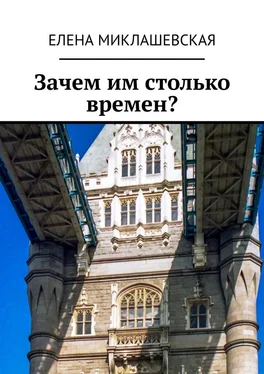
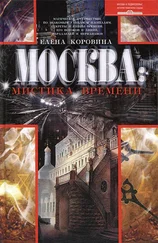



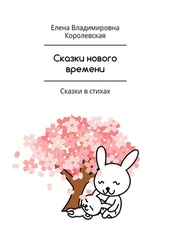

![Елена Гордина - Зачем ты это сделала? [litres с оптимизированной обложкой]](/books/433414/elena-gordina-zachem-ty-eto-sdelala-litres-s-opti-thumb.webp)
